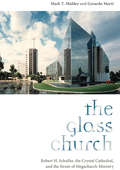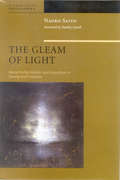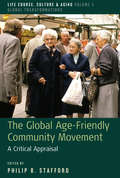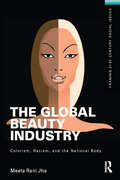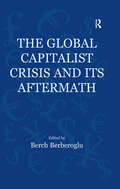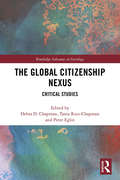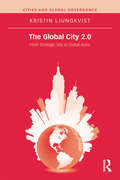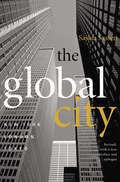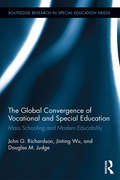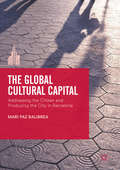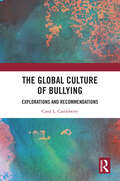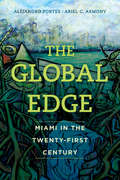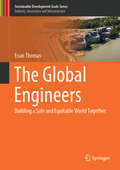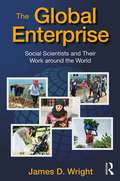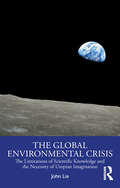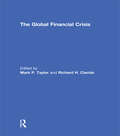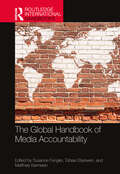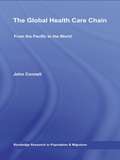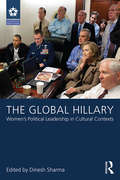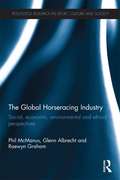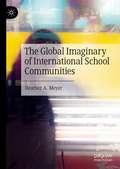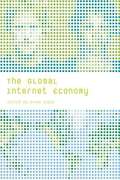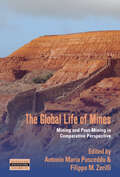- Table View
- List View
The Glass Church: Robert H. Schuller, the Crystal Cathedral, and the Strain of Megachurch Ministry
by Mark T. Mulder Gerardo MartíRobert H. Schuller’s ministry—including the architectural wonder of the Crystal Cathedral and the polished television broadcast of Hour of Power—cast a broad shadow over American Christianity. Pastors flocked to Southern California to learn Schuller’s techniques. The President of United States invited him sit prominently next to the First Lady at the State of the Union Address. Muhammad Ali asked for the pastor’s autograph. It seemed as if Schuller may have started a second Reformation. And then it all went away. As Schuller’s ministry wrestled with internal turmoil and bankruptcy, his emulators—including Rick Warren, Bill Hybels, and Joel Osteen— nurtured megachurches that seemed to sweep away the Crystal Cathedral as a relic of the twentieth century. How did it come to this? Certainly, all churches depend on a mix of constituents, charisma, and capital, yet the size and ambition of large churches like Schuller’s Crystal Cathedral exert enormous organizational pressures to continue the flow of people committed to the congregation, to reinforce the spark of charismatic excitement generated by high-profile pastors, and to develop fresh flows of capital funding for maintenance of old projects and launching new initiatives. The constant attention to expand constituencies, boost charisma, and stimulate capital among megachurches produces an especially burdensome strain on their leaders. By orienting an approach to the collapse of the Crystal Cathedral on these three core elements—constituency, charisma, and capital—The Glass Church demonstrates how congregational fragility is greatly accentuated in larger churches, a notion we label megachurch strain, such that the threat of implosion is significantly accentuated by any failures to properly calibrate the inter-relationship among these elements.
The Gleam of Light: Moral Perfectionism and Education in Dewey and Emerson (American Philosophy #Vol. 16)
by Stanley Cavell Naoko SaitoIn the name of efficiency, the practice of education has come to be dominated by neoliberal ideology and procedures of standardization and quantification. Such attempts to make all aspects of practice transparent and subject to systematic accounting lack sensitivity to the invisible and the silent, to something in the human condition that cannot readily be expressed in an either-or form. Seeking alternatives to such trends, Saito reads Dewey’s idea of progressive education through the lens of Emersonian moral perfectionism (to borrow a term coined by Stanley Cavell). She elucidates a spiritual and aesthetic dimension to Dewey’s notion of growth, one considerably richer than what Dewey alone presents in his typically scientific terminology.
The Global Age-Friendly Community Movement: A Critical Appraisal (Life Course, Culture and Aging: Global Transformations #5)
by Philip B. StaffordThe age-friendly community movement is a global phenomenon, currently growing with the support of the WHO and multiple international and national organizations in the field of aging. Drawing on an extensive collection of international case studies, this volume provides an introduction to the movement. The contributors – both researchers and practitioners – touch on a number of current tensions and issues in the movement and offer a wide-ranging set of recommendations for advancing age-friendly community development. The book concludes with a call for a radical transformation of a medical and lifestyle model of aging into a relational model of health and social/individual wellbeing.
The Global Beauty Industry: Colorism, Racism, and the National Body (Framing 21st Century Social Issues)
by Meeta JhaThe Global Beauty Industry is an interdisciplinary text that uses beauty to explore topics of gender, race, class, colorism, nation, bodies, multiculturalism, transnationalism, and intersectionality. Integrating materials from a wide range of cultural and geo-political contexts, it coalesces with initiatives to produce more internationally relevant curricula in fields such as sociology, as well as cultural, women's/gender, media, and globalization studies.
The Global Capitalist Crisis and Its Aftermath: The Causes and Consequences of the Great Recession of 2008-2009 (Globalization, Crises, and Change)
by Berch BerberogluWritten by a team of experts on the contemporary global capitalist political economy who are able to shed light on the inner workings of global capitalism and the capitalist globalization process that has led to the growth and development of capitalism from the national to the global level, this groundbreaking volume provides critical analyses of the causes and consequences of the Great Recession of 2008-2009. Through a careful examination of the origin, development and aftermath of the catastrophic economic crisis from which the world is still trying to recover, editor Berch Berberoglu and his colleagues demonstrate that those most responsible for the economic collapse are the ones least affected by its devastating impact felt most severely by working people around the world. Ultimately, this book argues that it is only through the systematic restructuring of the world economy by the working class that society will be able to prevent the boom and bust cycle of global capitalist crises and usher in a more egalitarian socialist economy and society.
The Global Citizenship Nexus: Critical Studies (Routledge Advances in Sociology)
by James MorenoIn the spirit of Ivan Illich’s 1968 speech ‘To hell with good intentions’, the book takes aim at a ubiquitous form of contemporary ideology, namely the concept of global citizenship. Its characteristic discourse can be found inhabiting a nexus of four complexes of ‘ruling’ institutions, namely universities with their international service learning, the United Nations and allied international institutions bent on global citizenship education, international non-governmental organizations and foundations promoting social entrepreneurship, and global corporations and their mouthpieces pitching corporate social responsibility and sustainable development. The question is: in the context of Northern or Western imperialism and US-led, neoliberal, global, corporate capitalism, and the planetary Armageddon they are wringing, what is the concept of global citizenship doing for these institutions? The studies in the book put this question to each of these four institutional complexes from broadly political-economic and post-colonial premises, focusing on the concept’s discursive use, against the background of the mounting production of the global non-citizen as the global citizen’s ‘other’. Addressed to all users of the concept of global citizen(ship) from university students and faculty in global studies to social entrepreneurs and United Nations bureaucrats, the book’s studies ultimately ask whether the idea helps or hinders the global quest for social and economic justice.
The Global City 2.0: From Strategic Site to Global Actor (Cities and Global Governance)
by Kristin LjungkvistGlobal cities all over the world are taking on new roles as they increasingly participate directly and independently in international affairs and global politics. So far, surprisingly few studies have analyzed the role of the Global City beyond its already well explicated role in the globalized economy. How is it that local governments of Global Cities claim international political authority and develop what appears to be their own independent foreign and security policies despite the fact that such policy areas have traditionally been considered to be the core function of nation-states and central governments? What does it mean to be and to govern the contemporary Global City? In this book Kristin Ljungkvist claims that we can better understand why local governments find it to be in their Global City’s interest to claim international political authority by exploring how the city’s role in the globalized world is constructed and narrated locally. A core claim is that Global City-hood as a specific type of collective identity can play a constitutive part in such interest formation. Combining insights from International Relations and Urban Studies scholarship, and with the help of a case study on New York City, Ljungkvist develops a new analytical framework for studying the Global City as an international political actor. The Global City 2.0 shows that even as the Global City engages in various global issues such as global environmental governance or counterterrorism, such pursuit will be framed and rationalized in terms of the city’s economic growth. The quest for growth and global competitiveness are not necessarily the only available meanings attached to the being and governing of the contemporary Global City. However, there seems to be a remarkable persistency and attraction in economistic ideas and an economistic conception of the Global City.
The Global City: New York, London, Tokyo
by Saskia SassenThis classic work chronicles how New York, London, and Tokyo became command centers for the global economy and in the process underwent a series of massive and parallel changes. What distinguishes Sassen's theoretical framework is the emphasis on the formation of cross-border dynamics through which these cities and the growing number of other global cities begin to form strategic transnational networks. All the core data in this new edition have been updated, while the preface and epilogue discuss the relevant trends in globalization since the book originally came out in 1991.
The Global Convergence Of Vocational and Special Education: Mass Schooling and Modern Educability (Routledge Research in Special Educational Needs)
by John G. Richardson Jinting Wu Douglas M. JudgeThe global trend in educational participation has brought with it a cross-national consequence: the expansion of students with "special needs" (SEN) placed in special education and the growth of "low achieving" students diverted to vocational tracks. This book explores the global expansion of special and vocational education as a highly variable event, not only across nations of considerable economic, political and cultural difference, but between nations with evident similarities as well. The Global Convergence of Vocational and Special Education analyzes how the concept of secular benevolence underscores the divergent and convergent trajectories that vocational and special education have taken across the globe. The authors embrace national differences as the means to observe two dicta of comparative research: similar origins can result in very different outcomes, and similar outcomes can be the result of very different origins.
The Global Cultural Capital
by Mari Paz BalibreaThis book argues the crucial role of culture and cultural policies in defining the notion of urban citizenship in Barcelona since 1979. Through analysis of official documents, municipal publicity campaigns, sport - including the Olympic Games and Barcelona F. C - and film, Balibrea makes sense of the city as a global cultural destination and reveals how such transformation impacts local inhabitants. Scrutinizing municipal discourses on culture from the late 1970s, this interdisciplinary work unveils how ideas of the function and nature of citizenship articulate changing definitions of the city, from model to brand. Over the course of topics such as: tourism, social democracy and urban regeneration, Balibrea constructs an original argument for how the Barcelona image mobilizes neoliberal fantasies of subject transformation. A wide-ranging study, this book will be of great interest to scholars of urban geography, sociology and cultural studies. iv>
The Global Culture of Bullying: Explorations and Recommendations
by Carol CastleberryThis book explicates “bullying” as a concept and as a social and cultural phenomenon that has become a defining reality of the times in which we live. The author begins in the arena where it is first, and most acutely individually, experienced—in school—and expands to other institutions and areas of social life—the family, the workplace, and the local, national, and international spheres, extending the concept of bullying to the global arena to uncover the social and institutional root causes of the extreme forms of bullying such as trafficking, torture, terrorism, and genocide. The book discusses the steps taken to address these issues and analyzes their efficacy. It explores the concept of epigenetics, brain development, childhood experiences, and other psychological factors that contribute to bullying behaviors and predispositions. The book investigates and compares anti-bullying and anti-violence initiatives taken particularly in the U.S, the U.K., and India to address the issue and create community-wide resilience practices. It also describes the current trends in decisions from international, regional, and domestic law, and offers evidence-based policy recommendations to establish a culture of respect for human dignity. An interdisciplinary, intercultural exploration, and analysis of the phenomenon of bullying, this book will be of interest to students, teachers, and researchers of psychology, sociology, anthropology, social justice and law, human rights, and cultural studies. It will also be useful for academic libraries, academicians, policy planners, school administration, government officials, and readers interested in reading about bullying.
The Global Edge: Miami in the Twenty-First Century
by Alejandro Portes Ariel C. ArmonyOver the last quarter century, no other city like Miami has rapidly transformed into a global city. The Global Edge charts the social tensions and unexpected consequences of this remarkable process of change. Acting as a follow-up to the highly successful City on the Edge, The Global Edge examines Miami in the context of globalization and scrutinizes its newfound place as a major international city. Written by two well-known scholars in the field, the book examines Miami’s rise as a finance and banking center and the simultaneous emergence of a highly diverse but contentious ethnic mosaic. The Global Edge serves as a case study of Miami’s present cultural, economic, and political transformation, and describes how its future course can provide key lessons for other metropolitan areas throughout the world.
The Global Engineers: Building a Safe and Equitable World Together (Sustainable Development Goals Series)
by Evan ThomasThe Global Engineers: Building a Safe and Equitable World Together, is inspired by the opportunities for engineers to contribute to global prosperity. This book presents a vision for Global Engineering, and identifies that engineers should be concerned with the unequal and unjust distribution of access to basic services, such as water, sanitation, energy, food, transportation, and shelter. As engineers, we should place an emphasis on identifying the drivers, determinants, and solutions to increasing equitable access to reliable services. Global Engineering envisions a world where everyone has safe water, sanitation, energy, food, shelter, and infrastructure, and can live in health, dignity, and prosperity.This book seeks to examine the role and ultimately the impact of engineers in global development. Engineers are solutions-oriented people. We enjoy the opportunity to identify a product or need, and design appropriate technical solutions. However, the structural and historical barriers to global prosperity requires that Engineers focus more broadly on improving the tools and practice of poverty reduction and that we include health, economics, policy, and governance as relevant expertise with which we are conversant.Engineers must become activists and advocates, rejecting ahistorical technocratic approaches that suggest poverty can be solved without justice or equity. Engineers must leverage our professional skills and capacity to generate evidence and positive impact toward rectifying inequalities and improving lives.Half of this book is dedicated to profiles of engineers and other technical professionals who have dedicated their careers to searching for solutions to global development challenges. These stories introduce the reader to the diverse opportunities and challenges in Global Engineering.
The Global Enterprise: Social Scientists and Their Work around the World
by James D. WrightThere are approximately 200 nations on Earth and the social sciences are being practiced in each one, yet too little of this global enterprise is known to Western, particularly American, social scientists. Drawing upon five years of experience as editor-in-chief of a major international encyclopedia of the social and behavioral sciences, James D. Wright provides social scientists a representative sampling of the work of their international colleagues. The volume includes investigations into a myriad of questions. How have Muslims accommodated to life in Western societies? What were the demographic consequences of World War I? What are the economic, social, and environmental costs and benefits of hosting a cruise ship terminal? Has the situation of Honduran street children improved in the past two decades? What is the state of public health in Africa? Wright shows how social scientists outside the United States have answered all of these questions and many more. From efforts at historical preservation in the Peoples Republic of China to the sexual abuse of children in New Zealand, and from earthquake research in Japan to network jihadi terrorism, The Global Enterprise includes research that will intrigue anyone interested in what social scientists contribute to our understanding of contemporary social trends and advances, both locally and globally. Key research is underway in social science around the world, and it is far past time that Western social scientists learned of and learned from these findings.
The Global Environmental Crisis: The Limitations of Scientific Knowledge and the Necessity of Utopian Imagination
by John LieThe Global Environmental Crisis presents a new perspective on our inattention and inaction in the face of a major crisis. We cannot proceed without scientific knowledge, but we cannot exclusively rely on it. What we need, in addition to scientific knowledge, is utopian imagination to make us understand the nature of the crisis and to suggest an alternative vision of a viable future. This book is an essential resource for students and instructors across the social sciences, especially sociology and environmental studies. It will also be a crucial and accessible text for general readers interested in climate change and how to imagine a better world for themselves and future generations.
The Global Financial Crisis
by Mark P. Taylor Richard H. ClaridaThe global financial crisis has sent shockwaves through the world’s economies, and its effects have been deep and wide-reaching. This book brings together a range of applied studies, covering a range of international and regional experience in the area of finance in the context of the global downturn.The volume includes an exploration of the impact of the crisis on capital markets, and how corporate stakeholders need to be more aware of the decision-making processes followed by corporate executives, as well as an analysis of the policy changes instituted by the Fed and their effects. Other issues covered include research into the approach of solvent banks to toxic assets, the determinants of US interest rate swap spreads during the crisis, a new approach for estimating Value-at-Risk, how distress and lack of active trading can result in systemic panic attacks, and the dynamic interactions between real house prices, consumption expenditure and output. Highlighting the global reach of the crisis, there is also coverage of recent changes in the cross-currency correlation structure, the costs attached to global banking financial integration, the interrelationships among global stock markets, inter-temporal interactions between stock return differential relative to the US and real exchange rate in the two most recent financial crises, and research into the recent slowdown in workers’ remittances.This book was published as a special issue of Applied Financial Economics.
The Global Handbook of Media Accountability (Routledge International Handbooks)
by Matthias Karmasin Tobias Eberwein Susanne FenglerThe Global Handbook of Media Accountability brings together leading scholars to de-Westernize the academic debate on media accountability and discuss different models of media self-regulation and newsroom transparency around the globe. With examination of the status quo of media accountability in 43 countries worldwide, it offers a theoretically informed comparative analysis of accountability regimes of different varieties. As such, it constitutes the first interdisciplinary academic framework comparing structures of media accountability across all continents and creates an invaluable basis for further research and policymaking. It will therefore appeal to scholars and students of media studies and journalism, mass communication, sociology, and political science, as well as policymakers and practitioners.
The Global Health Care Chain: From the Pacific to the World (Routledge Research in Population and Migration)
by John ConnellFor more than a quarter of a century there has been significant international migration of skilled health workers, but in the last decades, with critical changes in both sending and receiving countries, few parts of the world are now unaffected by the consequences of the migration of health workers, either as sources, destinations or sometimes both. The book takes the understanding of health worker migration substantially beyond the more scattered and fragmented papers and anecdotes that largely existed before, into the first consolidated analysis. In doing so it reveals its exceptional significance for both sending and receiving countries (in economic, social and political terms), provides the only analysis of remittances of health workers, casts new light on gender, globalisation, transnational linkages, the trade in services (linked to GATS) and the overall relationship between migration and development, and reviews practical responses and solutions.
The Global Hillary: Women's Political Leadership in Cultural Contexts (Leadership: Research and Practice)
by Dinesh SharmaIs there a linkage between "smart power" and Hillary Clinton's leadership style? Can she advance American leadership and women's development worldwide? The Global Hillary addresses these questions and many others. Bringing together two key aspects of Clinton’s ongoing career—her advocacy for international women’s rights and the mission to foster democratic development around the world—The Global Hillary critically analyzes Clinton’s role as a transformative leader of global influence. Essays in this collection provide insight into Clinton’s leadership style, particularly her use of American "smart power" in foreign policy, while examining her impact on the continuing worldwide struggle for women’s rights. Using international perspectives on the historical and cultural contexts of Clinton’s leadership, this book also looks toward the future of women’s political leadership in the 21st century with special attention to the prospect of electing a woman to the United States presidency.
The Global Horseracing Industry: Social, Economic, Environmental and Ethical Perspectives (Routledge Research in Sport, Culture and Society)
by Phil McManus Glenn Albrecht Raewyn GrahamHorseracing, thoroughbred breeding and gambling on racing are global industries worth several hundred billion dollars. They are also industries facing serious challenges, from the rise of alternative forms of leisure gambling to concerns about the ethical treatment of animals in all equestrian sports. This book offers a broad-ranging examination of the contemporary horseracing industry, from geographical, economic, social, ethical and environmental perspectives. The book draws on in-depth, mixed-method research into the racing and breeding industries in the US, Australia, the UK, Canada and New Zealand, and includes comparative material on other key racing centres, such as Ireland, Singapore and Hong Kong. It explores the economic structure of the global racing business, including comparisons with other major international sport businesses and other equestrian sports. It examines the social and cultural roots of the sport through its association with, and impact on, rural places, communities and environments from Kentucky to Newmarket – highlighting racing’s particular blend of tradition and scientific and technological innovation. The book also explores the ethical issues at the heart of horseracing, from reproduction to the use of the whip, and the inescapable tension between the horse as an instrumentally valuable commodity and the horse as an intrinsically valuable animal with needs and interests. The Global Horseracing Industry concludes by considering alternative futures for this major international sports business. The book is illuminating reading for anybody with an interest in sport, business, cultural geography, animal studies, or environmental studies.
The Global Imaginary of International School Communities
by Heather A. MeyerThis book offers a new perspective into the world of international schools and the lucrative industry that accompanies it. It examines how the notion of the ‘global’ becomes a successful commodity, an important social imaginary and a valuable identity marker for these communities of privileged migrants and host country nationals. The author invites the reader on an ethnographic journey through an international school community located in Germany – illuminating the central features that define and maintain the sector, including its emphasis on ‘globality’, engagement with the concept of ‘Third Culture Kid’, and its wider contentious relationship with the ‘local’. While much attention is placed on ‘global citizenship’, international school communities experience degrees of isolation, limited mobility, over-protection and dependency on the school community– impacting their everyday lives, inside and outside the school. This book is guided by larger questions pertaining to the education and mobilities of ‘migrant’ youths and young adults, as well as the notion of what it means to be ‘global’ today.
The Global Internet Economy
by Bruce KogutThe intertwining of the Internet and the globalization of finance, corporate governance, and trade raises questions about national models of technology development and property rights.
The Global Life of Mines: Mining and Post-Mining in Comparative Perspective (Dislocations #37)
by Antonio Maria Pusceddu Filippo M. ZerilliResource extraction exists in diverse settings across the world and is carried out through different practices. The Global Life of Mines provides a comprehensive framework examining the spatial and temporal relationships between mining and postmining as interrelated and coexisting features within the global minescape. The book brings together scholars from various fields, such as anthropology, geography, sociology and political science, examining ethnographic case studies throughout the Americas (Bolivia, Brazil, Peru, USA), Africa (Democratic Republic of Congo) and Europe (Italy, Arctic Norway and Spain).
The Global Lives of German Migrants: Consequences of International Migration Across the Life Course (IMISCOE Research Series)
by Nils Witte Marcel Erlinghagen Andreas Ette Norbert F. SchneiderBased on the German case, this open access book highlights the increasing flows of migration and the internationalisation of individual life courses. It analyses the experiences of migration across four central domains - employment and income, partners and families, health and wellbeing, as well as friends and social participation - which potentially have far-reaching consequences for social inequalities and life chances. The book showcases results from an innovative probability sample that is representative of German emigrants who recently moved abroad and remigrants who recently returned from abroad and compares their international experiences with the sedentary population in Germany. Stays abroad, whether temporary or permanently, have become the new normal for increasing numbers of people from highly developed welfare states. Unnoticed from mainstream migration studies, these countries are today not only major immigration countries but also important sources of international mobility. By providing an empirically founded prism of the global lives of German migrants, this book is a valuable resource for students and researchers of migration, social inequality, and the life course and provides practitioners with insights into these regularly overlooked aspects of international migration.
The Global Pharmaceutical Industry: The Demise and the Path to Recovery (Routledge Advances in Management and Business Studies)
by Daniel Hoffman Allan BowditchThe pharmaceutical industry, long thought of as a recession-proof investment, now faces a day of reckoning. The reasons for this impending downfall are not hard to discern. The prices the industry charges for its prescription drugs have escalated at four to five times the cost-of-living increases during the past two decades and have reached a point where 30% of Americans must choose between filling a prescription, paying for housing, and buying food. This has brought about public pressure on governments around the world to control drug prices, yet the world’s twenty largest pharma companies realized 80% of their growth as a result of exorbitant price hikes. Pharma currently enjoys its extraordinary profitability by exploiting the world’s most vulnerable populations. Yet even their ability to increase prices in the face of falling demand does not satisfy their profit demands. The breadth and depth of pharma’s marketing transgressions exceed those of any other industry and have now reached a point where authorities around the world have found it necessary to take legal action against its violations. Drastic change is needed if the pharmaceutical industry can equitably advance the health of the world’s population and regain public esteem. This book illustrates the range and extent of pharma’s violations and addresses the actions that should be implemented in order to make the drug industry a more constructive, less venal part of contemporary society. It will be of interest to researchers, academics, practitioners, and students with an interest in the pharmaceutical industry, healthcare management, regulation, and bioethics.
